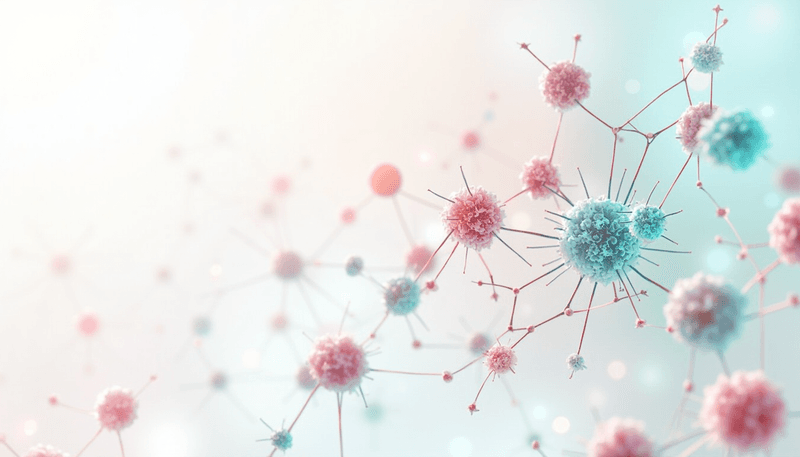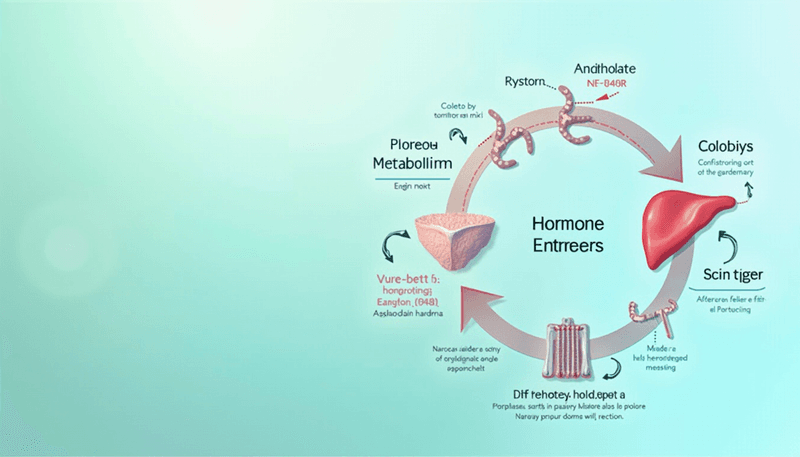DIM: Your Body's Natural Estrogen Helper

Have you ever wondered why your healthcare provider keeps insisting you eat more broccoli and Brussels sprouts? The answer lies in a fascinating compound called DIM (3,3'-diindolylmethane), which might be the unsung hero of hormone health. Recent groundbreaking research reveals promising insights about DIM's effects on women's hormone balance, and I'm thrilled to share what this means for you.
The Natural Hormone Balancer in Your Vegetables
When you bite into a piece of broccoli, you're consuming a precursor to DIM called indole-3-carbinol (I3C). Your body then transforms this compound into DIM, which works like a skilled orchestrator in your hormone symphony. The study showed that women taking DIM supplements experienced significant changes in their estrogen metabolism patterns, particularly in how their bodies process different forms of estrogen.
Think of DIM as your body's traffic controller, helping direct estrogen down the most beneficial pathways. But what does this actually mean for your wellbeing?
Let's use my favorite analogy: imagine your hormones are like ingredients in a complex recipe. Just as using too much salt can overpower a dish, having imbalanced estrogen metabolism can affect your entire system. DIM helps ensure the recipe stays perfectly balanced.
The Power of Strategic Eating
One of the most practical findings from this research is how we can support our hormone health through diet. The study revealed that DIM helps increase beneficial estrogen metabolites while reducing less favorable ones. Here's how you can apply this:
-
Load up on cruciferous vegetables: Aim for 2-3 servings daily of:
- Broccoli
- Brussels sprouts
- Cabbage
- Cauliflower
- Kale
- Bok choy
-
Timing matters: Consider incorporating these vegetables into your lunch and dinner meals
-
Preparation tips: Light steaming preserves the beneficial compounds better than overcooking
Question to ponder: How many servings of cruciferous vegetables did you eat this week? Could you add one more serving tomorrow?
Understanding Your Body's Response
The research showed something fascinating: women taking DIM experienced changes in their estrogen metabolism patterns within a relatively short time. This suggests our bodies are remarkably responsive to dietary interventions.
Signs that your estrogen metabolism might benefit from more attention include:
- Monthly cycle irregularities
- Mood fluctuations
- Energy level changes
- Sleep disturbances
The Science of Balance
The study revealed that DIM works by influencing specific enzymes called cytochrome P450. These enzymes are like little factory workers in your body, helping process estrogen into different forms. DIM helps direct more estrogen down the beneficial pathways, specifically increasing the production of 2-hydroxyestrone while reducing 16-hydroxyestrone.
Here's what you can do to support this process:
- Stay consistent: Regular consumption matters more than occasional large amounts
- Support your liver: Good liver health is essential for hormone metabolism
- Stay hydrated: Water helps your body process and eliminate hormones efficiently
Consider this: Your body is constantly working to maintain balance. How can you better support these natural processes each day?
Making It Work For You
The research presents clear evidence that DIM supplementation can influence estrogen metabolism, but remember that everyone's body is unique. Here are practical steps to take:
- Start with food first: Focus on increasing your intake of cruciferous vegetables
- Track your response: Keep a simple journal of how you feel
- Be patient: The study showed that changes occur gradually
- Consult experts: Work with healthcare providers who understand hormone health
As someone who has worked with countless women on their health journeys, I've seen how small, consistent changes can lead to significant improvements. Your hormone health is a marathon, not a sprint.
What one small change could you implement this week to support your hormone health?
The journey to hormone balance is personal and unique. Whether you choose to focus on dietary changes or explore supplementation with professional guidance, understanding how compounds like DIM work empowers you to make informed decisions about your health.
Your next step: Choose one cruciferous vegetable you enjoy and commit to adding it to your meals three times this week. Notice how you feel and consider keeping a simple journal of your observations. Your body's wisdom, combined with scientific understanding, creates the perfect recipe for optimal hormone health.

Amelia Grace Okonkwo
Amelia Grace Okonkwo is a freelance health writer and author with over 15 years of experience in health journalism, specializing in women's health and autoimmune disorders. With a background in biology and a Master’s in Public Health from Johns Hopkins, she combines scientific accuracy with a storytelling approach to make health information accessible and empowering. Amelia is known for her bestselling book, "The Skin We're In," which explores autoimmune disorders and their impact. She is passionate about delivering practical health insights for women, addressing topics from midlife wellness to mental health.







